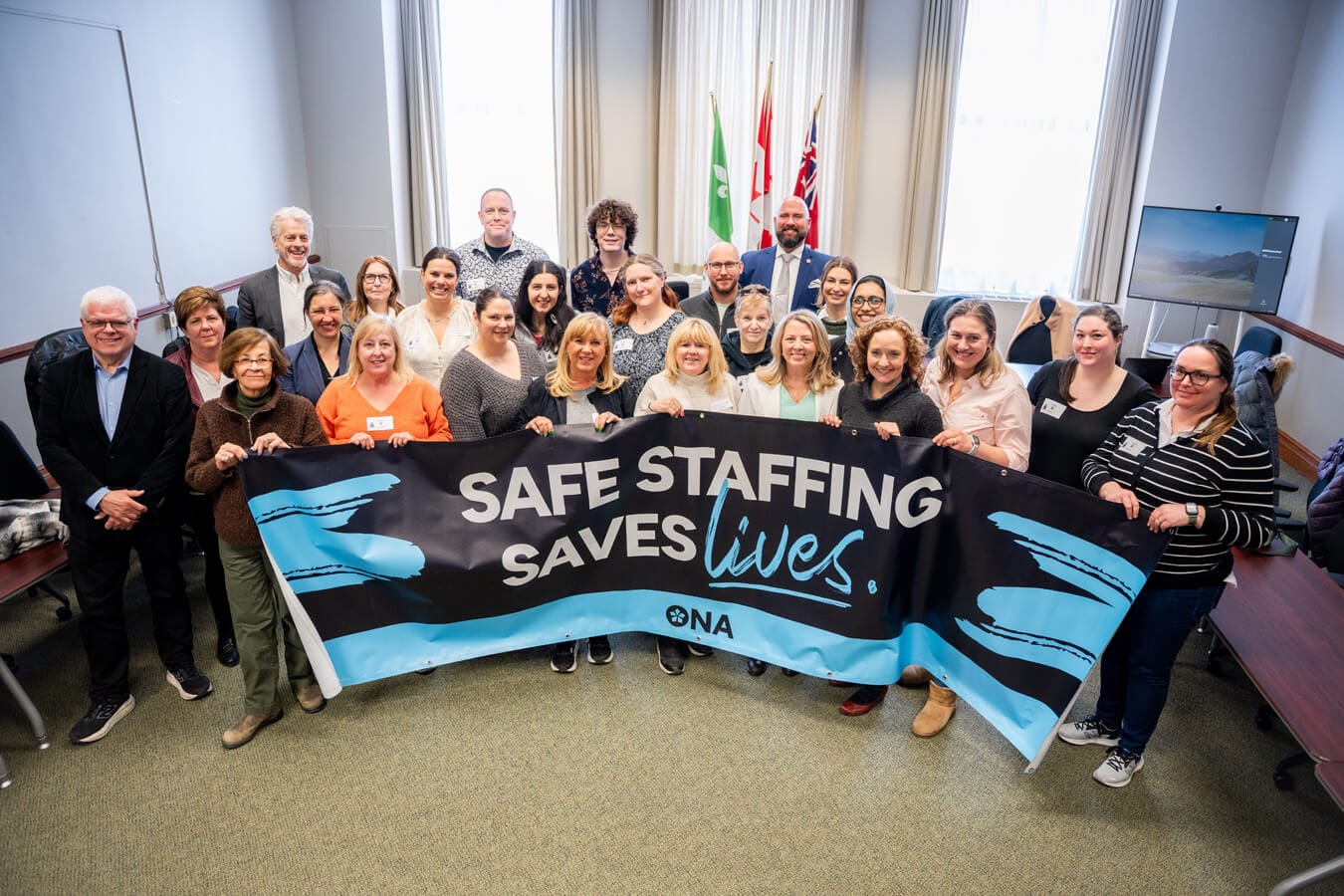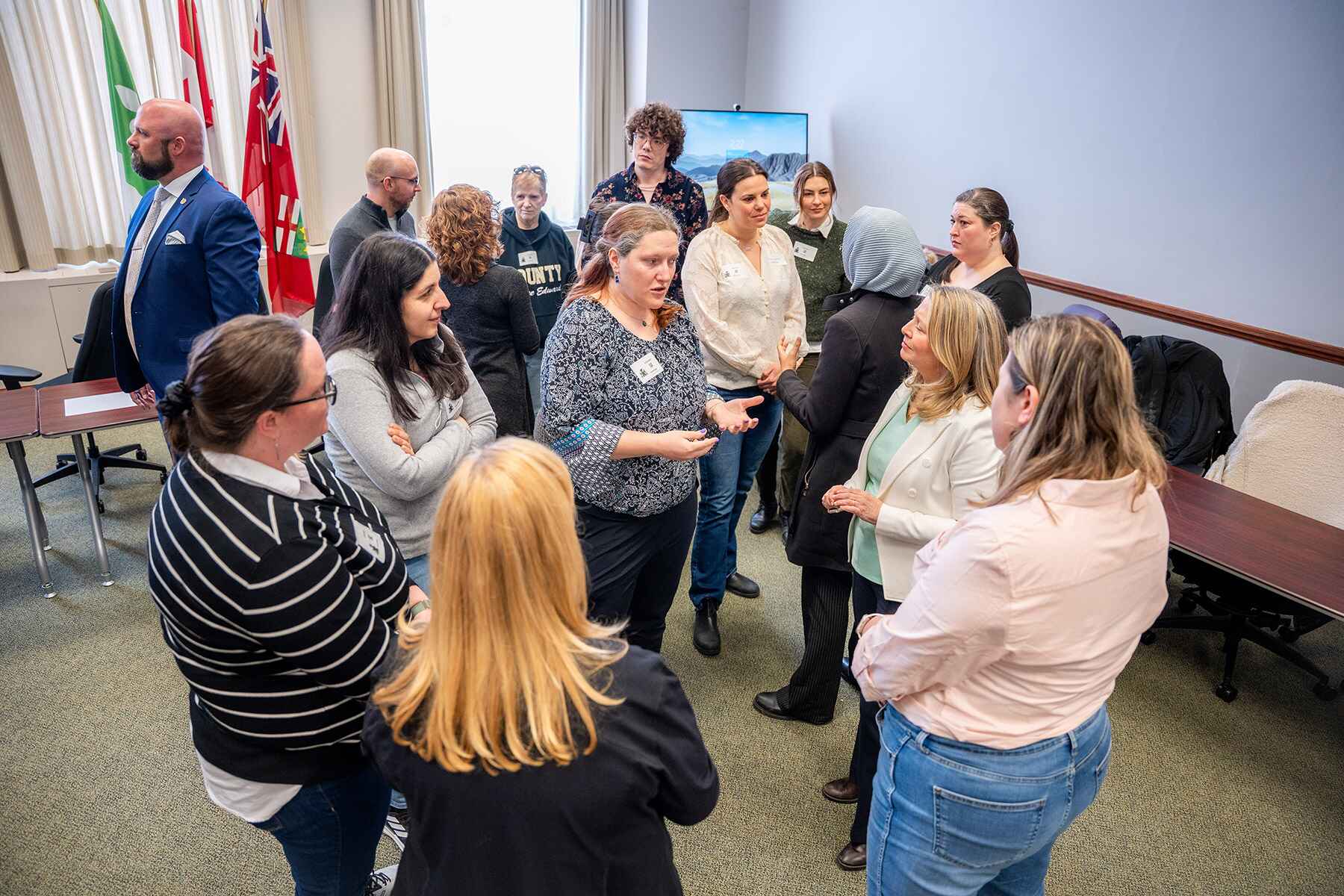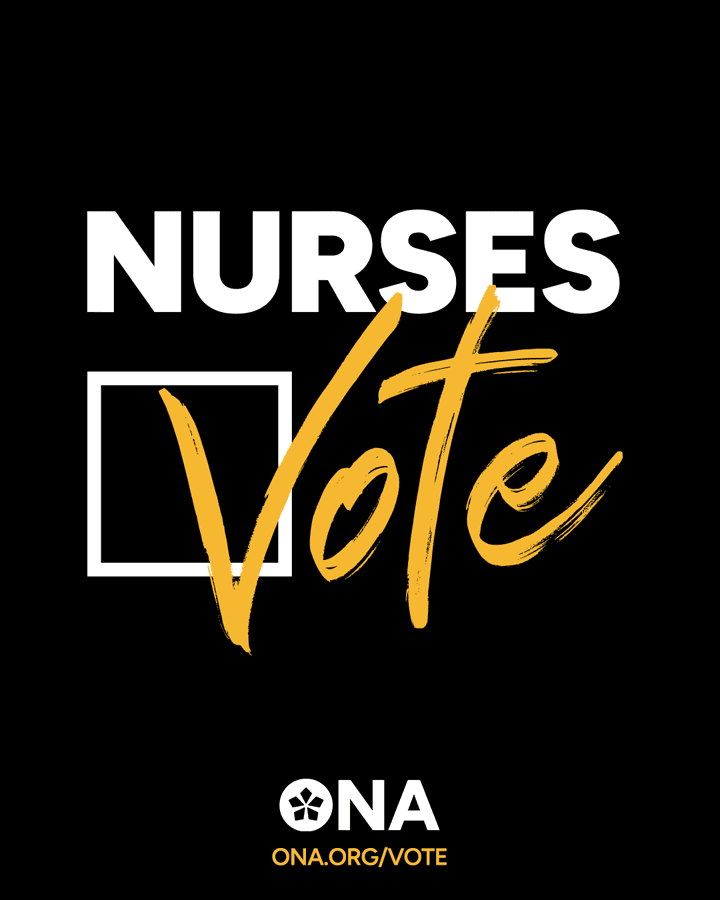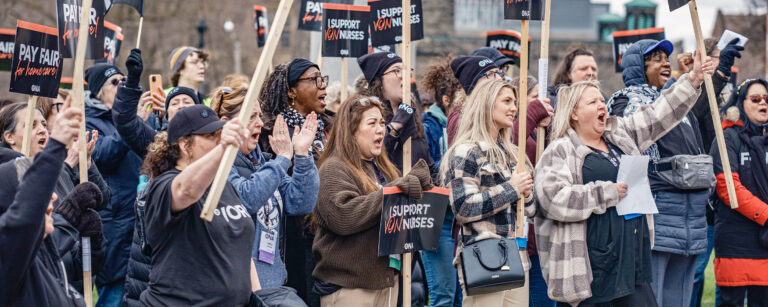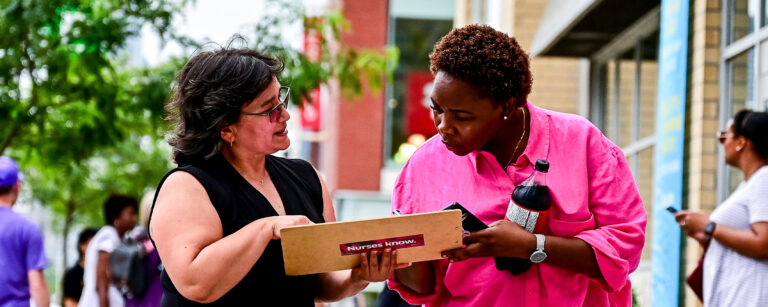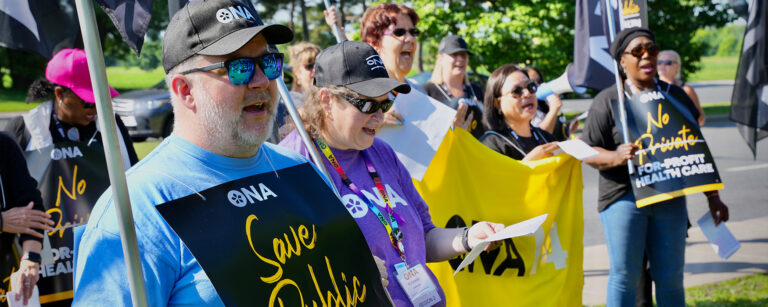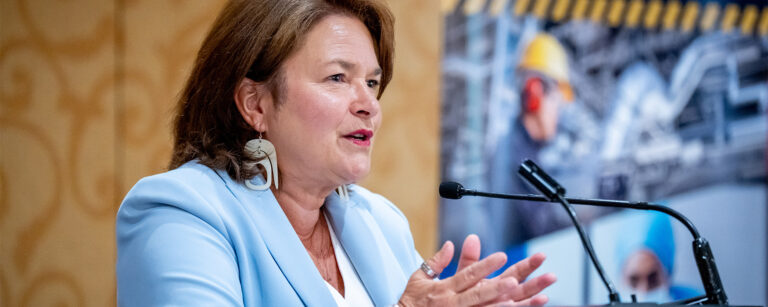While the recent re-election of the Ford Conservatives was not what we wanted, members took action and made a difference through our Nurses Vote campaign.
On January 28, Premier Doug Ford triggered an unnecessary (and costly) snap election, stating he needed a “strong mandate” to deal with President Trump’s ever-changing tariff threats to Canada. As a result, the 43rd (provincial) Parliament dissolved. Ontarians headed to the polls on February 27.
Opinion polling showed that health care ranked as the top issue during the election, even ahead of tariffs and affordability. As a result of our lobbying and advocacy, Ontario’s New Democratic Party, the Liberal Party of Ontario and the Green Party of Ontario included wage parity for nurses and health-care professionals in their election platforms.
After the ballots were counted, more health-care workers were elected to serve their community at Queen’s Park. ONA member Tyler Watt was elected as the Member of Provincial Parliament (MPP) for Nepean, and Robin Lennox, a family doctor, was elected as the MPP for Hamilton Centre.
On the ground, ONA members made a difference in the outcome of some of the closest races. Our campaign outreach was anchored by 17 seconded members from across the province selected through an expression of interest process, who received several days of training from ONA staff.
Nurses and health-care professionals demanded that candidates fully fund public health care, stop private, for-profit health care, and ensure safe staffing across all sectors.
Secondees and volunteers, including many members of our Retiree Network, made more than 19,000 calls in just six days to discuss the election with other members throughout the province.
We called members in three of four ridings where the Ford Conservatives were defeated after winning in the last election. In Ajax, where they lost by just over 300 votes, ONA members contributed to the defeat by calling all 700 members who lived in the riding and encouraging them to vote.
“My motivation to join the Nurses Vote campaign was over safe staffing because nurses don’t have the time or staff to provide the quality of care we can offer and that people deserve,” says Alison Tuzi, an RN working in the community sector.
“That’s one of the things that made me leave the bedside, but I still think about it all the time. The research for safe staffing ratios is out there just sitting on a shelf, but we need the political will to direct the funding to make it happen. So, being involved in this initiative was one small way to try and influence the progress towards safe staffing ratios.”
She adds that working the phone banks was “a great experience” and most of the interactions were very positive.
“We were encouraging people to vote while also providing a lot of education. There is a lot of apathy out there about politics and the value of one vote. Sometimes we were providing people with a way just to vent and get their concerns out, but certainly we had an impact. It was really great to just connect with members who are feeling the same things and trying to influence the outcomes.”
Anne Clark, the Region 2 representative on our Retiree Network Advisory Team (RNAT), who participated in the phone banks, agrees.
“It’s so simple to make the calls these days since you can do them right from home without going into a regional office. I did that right up until election day, calling people and reminding them to get out and vote. ONA is definitely hitting the right note with all its public education about the state of health care the last couple years because this time when I was calling, it was very positive. This is something that retired members can do, especially with the upcoming federal election. We’re going to have to get ramped up pretty fast.”
Her fellow RNAT Region 4 representative Jean Kuehl concurs, noting “there were a lot more people answering their phones and they really wanted to chat about the condition of our health-care system and the election in general. I was surprised by that.”
We know this important work doesn’t end with one election, and we’ll keep organizing in ridings and communities, and building our movement and support. Tuzi also encourages other members and retirees to get involved in future campaigns.
“I think you’ll find that it’s a rewarding experience connecting with members, and ONA certainly appreciates your experience and perspective from working in health care,” she says. “If you have time to join us on the phone banks, you will be well supported.”
Premier Ford and his Cabinet were sworn in on March 19. Sylvia Jones remains Minister of Health and Deputy Premier, along with Natalia Kusendova-Bashta as Minister of Long-Term Care and David Piccini as Minister of Labour, Immigration, Training and Skills Development. The Legislature resumed on April 14 to begin the 44th session of (provincial) Parliament.
